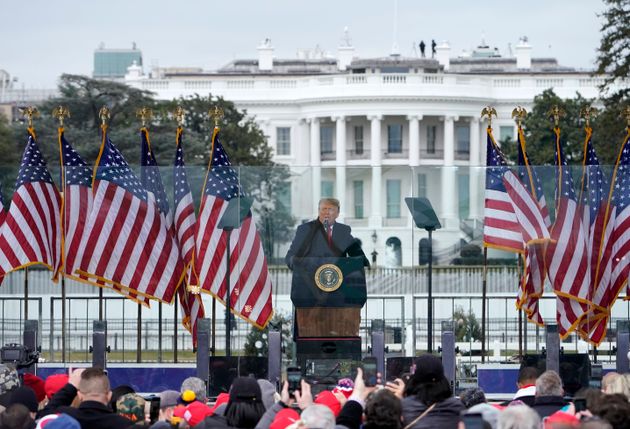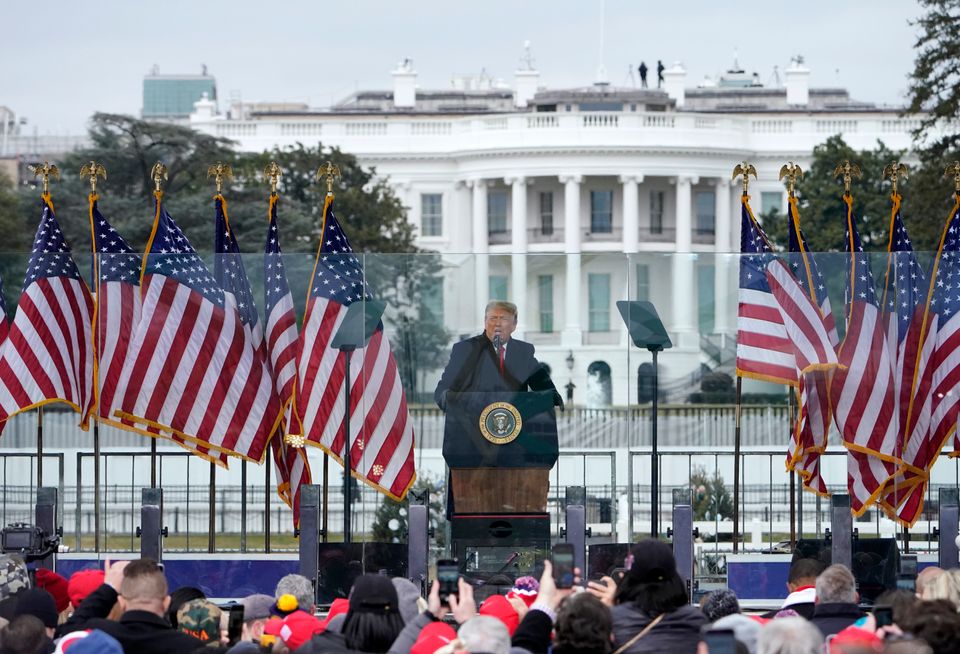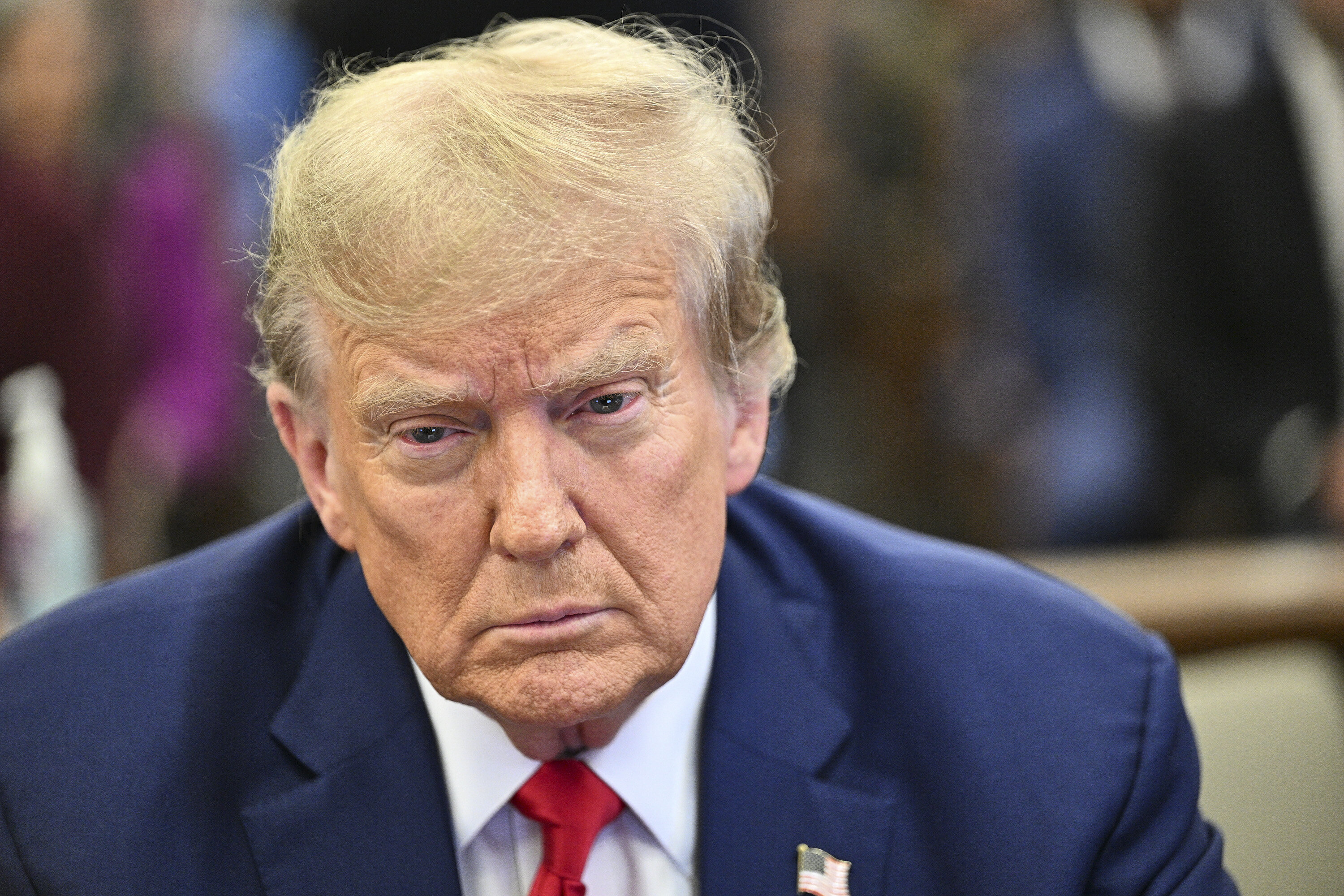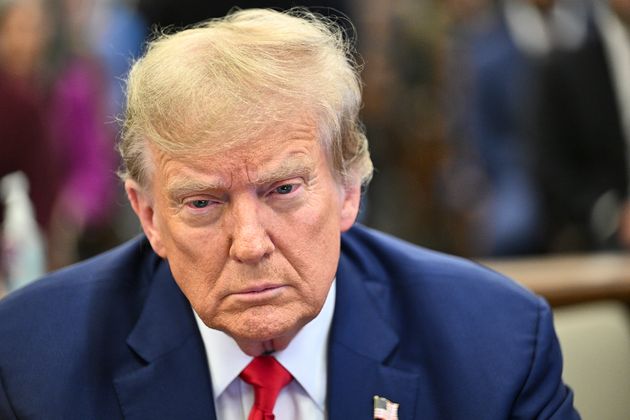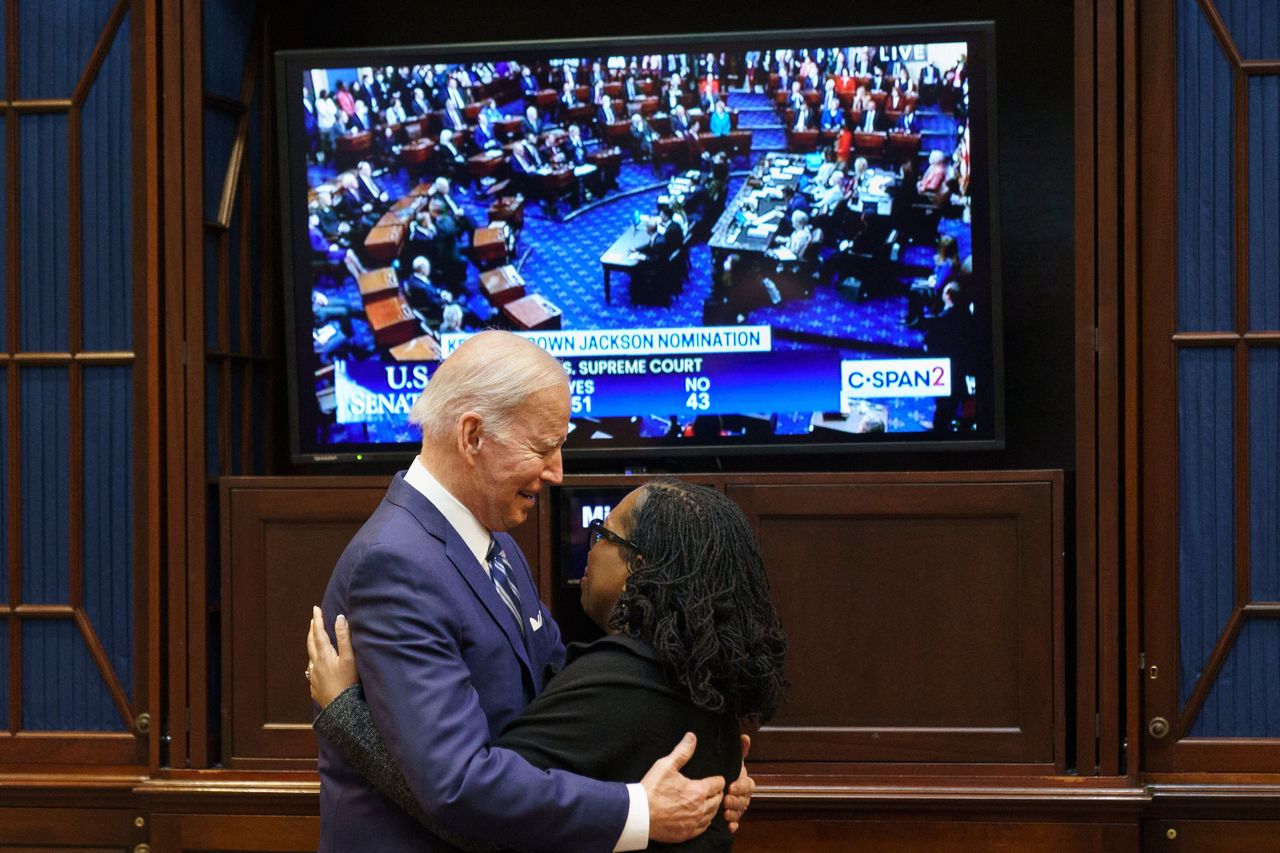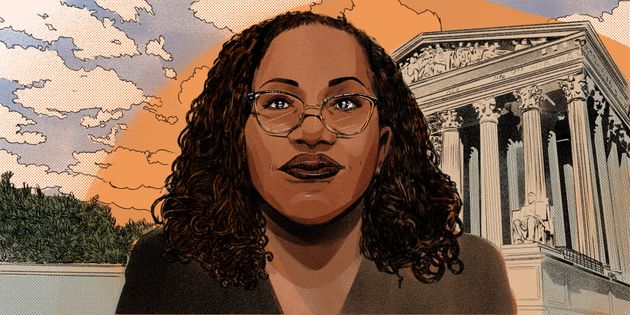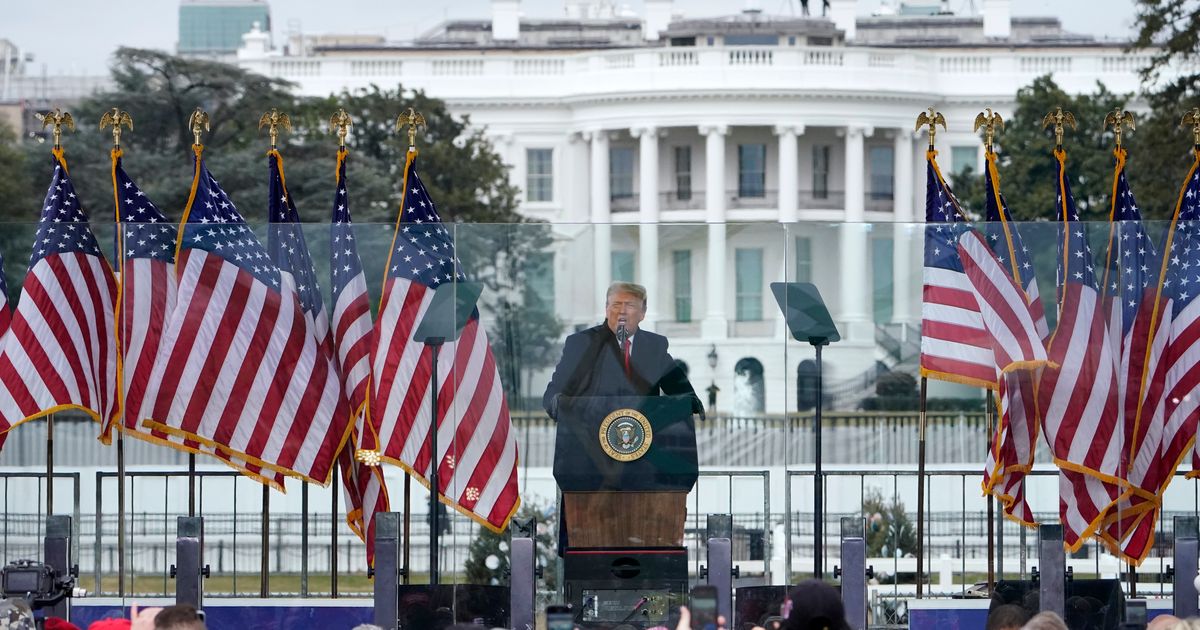
WASHINGTON — Donald Trump on Tuesday made his case to the US Supreme Court that his January 6, 2021, coup attempt was part of his official duties as president and is therefore immune from prosecution.
“The president cannot function, and the presidency itself cannot retain its vital independence, if the president faces criminal prosecution for official acts once he leaves office,” Trump lawyer John Sauer wrote in a 67-page brief.
Advertisement
Sauer repeated arguments he and other Trump lawyers had tried previously, including the notion that Trump can only be prosecuted for actions if he has previously been impeached for them by the House and convicted by the Senate.
Trump was impeached by the House over January 6, but the 57 votes to convict in the Senate were 10 shy of the supermajority necessary.
Sauer’s brief states that the lack of previous criminal prosecutions against former presidents for their conduct in office is proof that the legal authority to prosecute Trump for the same does not exist. It did not mention that Trump is the first president in the country’s history to not accept defeat after an election and to attempt to remain in office.
Sauer also repeats the previously tried claim that if Trump is not given immunity, every future president would be similarly at risk of prosecution. “A denial of criminal immunity would incapacitate every future president with de facto blackmail and extortion while in office, and condemn him to years of post-office trauma at the hands of political opponents,” he wrote.
Advertisement
Trump’s claims have previously been rejected by both a trial court and a federal appellate court. A rejection by the Supreme Court — which many legal observers say is likely — could force him to undergo trial on conspiracy and fraud charges in the January 6 case this autumn, just as many voters are starting to pay attention to a coming election in which Trump hopes to regain the White House.
In that scenario, a parade of onetime Trump aides, possibly including former Chief of Staff Mark Meadows, would appear on the witness stand almost daily, offering firsthand accounts to the jury and the public about Trump’s actions in the weeks leading up to and on that day, when a mob of his followers attacked the US Capitol to block congressional certification of his 2020 election loss.
Should the high court side with Trump, it would effectively end special counsel Jack Smith’s prosecution against the former president over his coup attempt.
According to Smith, US District Judge Tanya Chutkan and the three judges who heard the case on the U.S. Court of Appeals for the District of Columbia Circuit, it would also effectively allow presidents to commit all manner of crimes in office by claiming that they were carrying out official duties.
“Whatever immunities a sitting president may enjoy, the United States has only one chief executive at a time, and that position does not confer a lifelong ‘get-out-of-jail-free’ pass,” Chutkan wrote in her December 1, 2023, ruling.
Advertisement
“It would be a striking paradox if the president, who alone is vested with the constitutional duty to ‘take Care that the Laws be faithfully executed,’ were the sole officer capable of defying those laws with impunity,” the appeals court judges wrote in their Feb. 6 ruling.
During oral arguments in the case, one of the judges, Florence Pan, got Trump’s lawyer to acknowledge that, under his claim of immunity, a sitting president could order a political opponent to be assassinated by SEAL Team Six and never be prosecuted for it.
Smith’s response to Trump’s brief is due by April 8, and oral arguments in the case are set for April 25. A decision will almost certainly be handed down by the end of the court’s term in late June or early July.
A federal grand jury that indicted Trump last August charged him with conspiring to defraud the United States, conspiring to obstruct an official proceeding, obstructing an official proceeding and conspiring to deprive millions of Americans of having their votes counted.
It is one of four active criminal cases against the presumptive Republican presidential nominee. A second federal prosecution is based on his refusal to turn over secret documents that he took with him to his Florida country club upon leaving the White House; a Georgia state prosecution is based on his attempts to overturn his election loss in that state; and a New York indictment accuses him of falsifying business records to hide hush money payments to a porn star and a Playboy model in the weeks ahead of the 2016 election.
Advertisement
The New York case could go to trial as early as mid-April. If the Supreme Court rules against Trump on his immunity claim, the federal January 6 trial could begin as early as late summer.

